Organic gardening and organic growing mean to team up and work alongside natural systems and cycles in your garden. In this scenario, there is very little use of manufactured chemical substances, and instead, organic gardeners opt for natural resources.
One of the greatest benefits of choosing some organic methods in the garden is the avoidance of pollution, such as using manures and fertilisers from animal or plant remains. In other words, composting!
Some of the organic gardening techniques you can introduce on the plot include improving your soil, introducing your own compost, choosing wisely on your plants, natural pest control, and companion planting! As much as you give organic goodness to your garden it will give it to you back. Such as plenty of tasty crops, happy wildlife and a healthier environment. So, without further ado, here’s a guide to the basics of organic gardening plus additional tips to sustainability at home!
Care for Your Soil
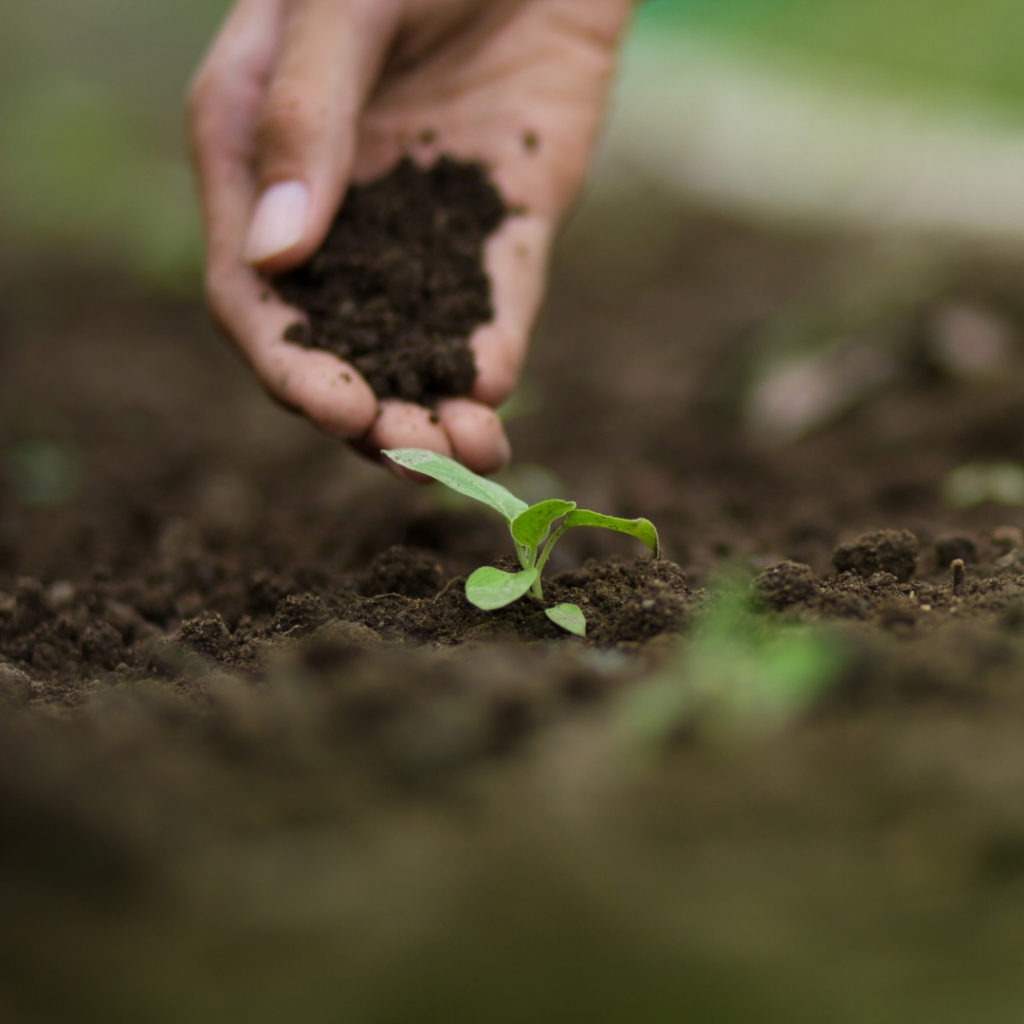
- Good soil means good plants and crops. Homemade garden compost and other organic manures are the best ways to feed your soil. This adds nutrients and aids in a good structure for your plants.
- If you minimise your digging this will also avoid disturbing the complex soil life. For your compost and manure, you can lightly gid this into your soil or spread it along the surface.
- Get to know your soil for what it likes and how to maintain it. Keep your soil covered with beautiful plants and tasty crops, or opt for mulch and green manure to protect your soil and keep pesky weeds away!
- Rotate your veg. If you plan your vegetable year and always have something growing, you will avoid a breakout of pests and diseases.
- Avoid harmful chemicals – if you follow all of the above, you will hopefully not find the need to use chemical weed and pest killers, which damage the growing area too.
Not sure about what soil you have? Read our Soil Type blog to find out!
Keep Up The Weeding
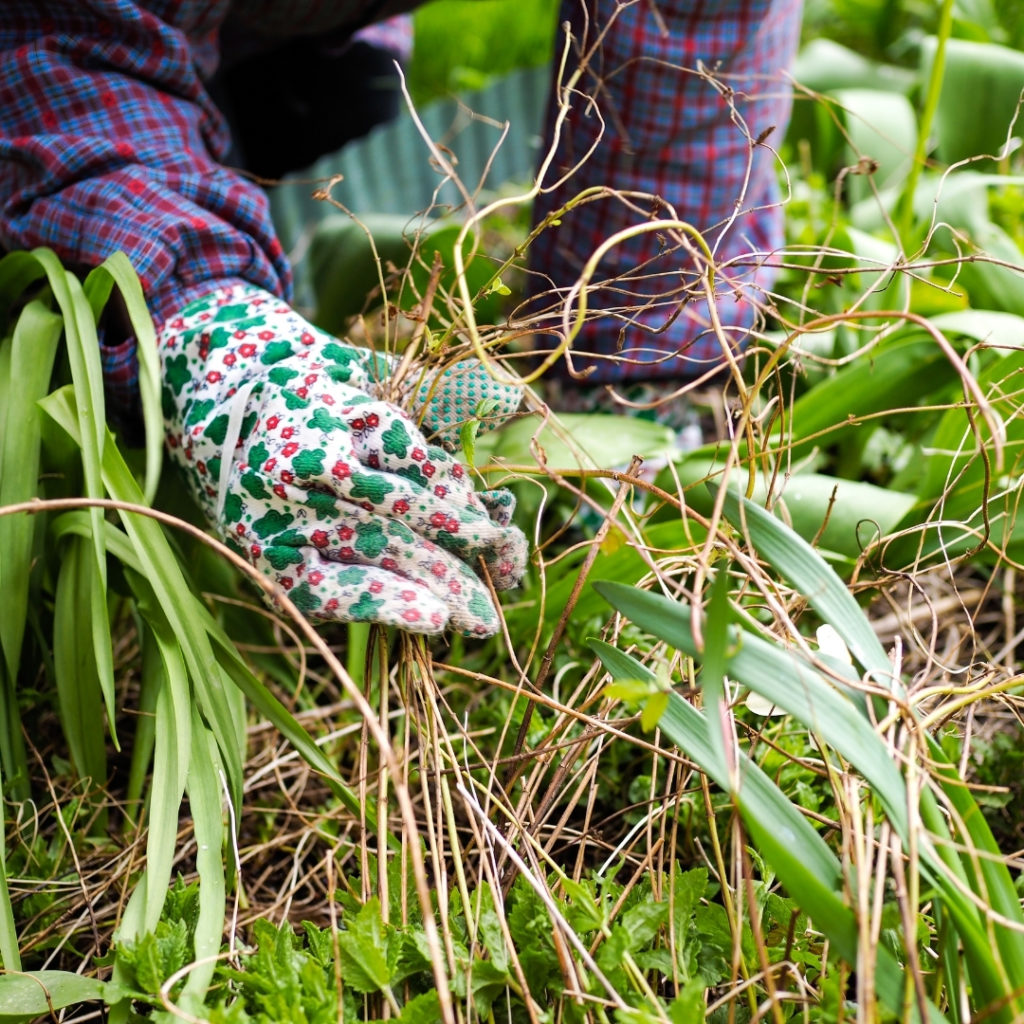
- Similar to the advice above on how to care for your soil, you can control your weeds naturally by spreading mulch and even compost and composted straw across the surface of your soil.
- If weedlings begin to show, act quickly and pull them up with a hoe before they set seed and spread.
- Always discard your weeds, they might reproduce on your compost heap!
- Try weeding a little but often if they do occur, this way you will have more control if they begin to spread.
- Hopefully, if you care for your soil properly weedling won’t happen, but even if they do you’re not having to use harsh chemical killers and every little helps with the environment!
Compost Everything You Can
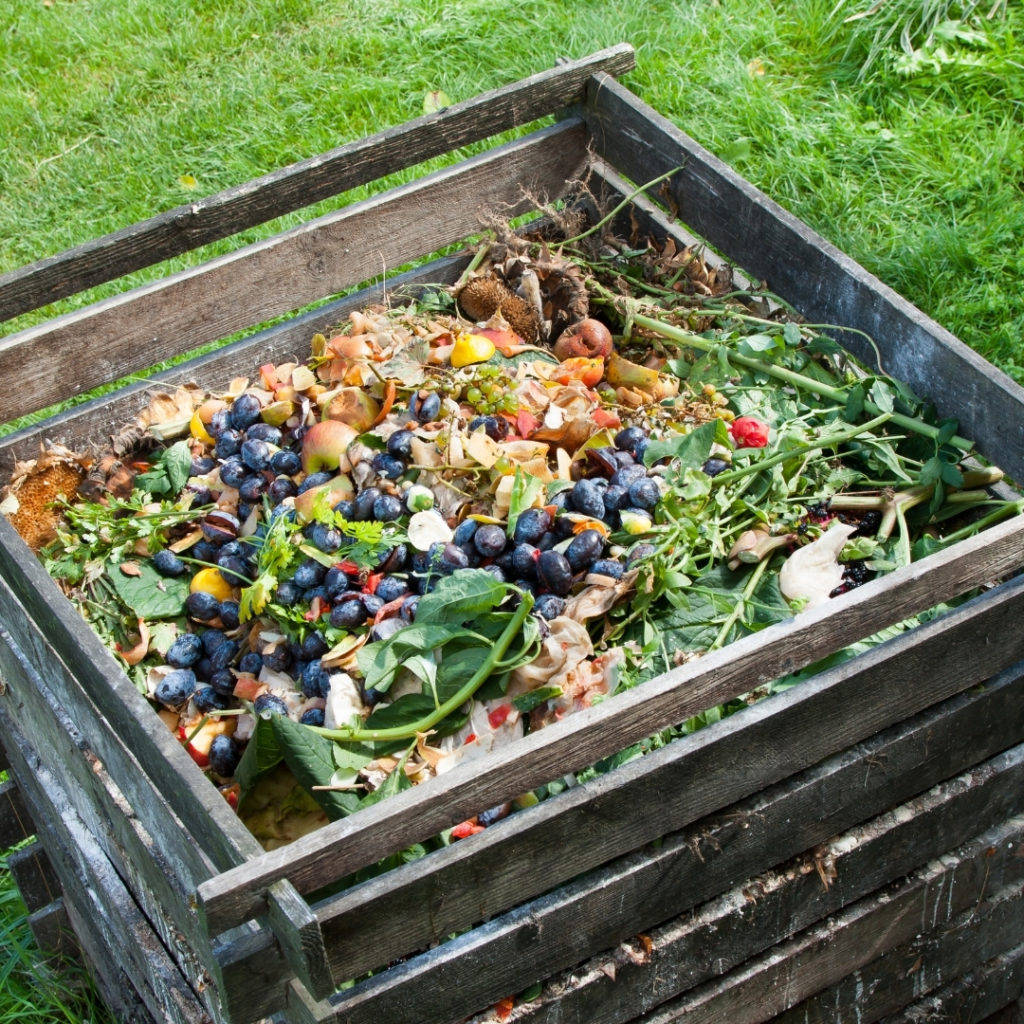
- Almost anything biodegradable can be chucked in the compost pile. From cut off flower heads, prunings, peelings and food waste can be transformed into nutritious and resourceful compost.
- Once you begin this you will soon realise that feeling the soil is the key to success with an organic garden. Home-made compost is free and we have many compost bins for you to try!
- Alternatively, you could build one using old containers or pallets, and fill them with a mix of brown and green material to hit the ground running.
- Make sure to remember to turn your heap pretty regularly, but try not to disturb any wildlife friends in there!
- It can be hard to get the perfect compost heap, some are too wet, to dry or don’t rot down quick enough. The best advice is to use a mix of materials, from leafy grass clippings to kitchen waste. This will keep a good balance in moisture and encourage quicker decomposition.
- Lastly, the bigger the heap the better! The bigger it grows the quicker it goes, so make sure you have a big compost bin! But, starting small is a small step to helping the environment, your soil and crops too.
Choose the Right Seeds & Plants for You
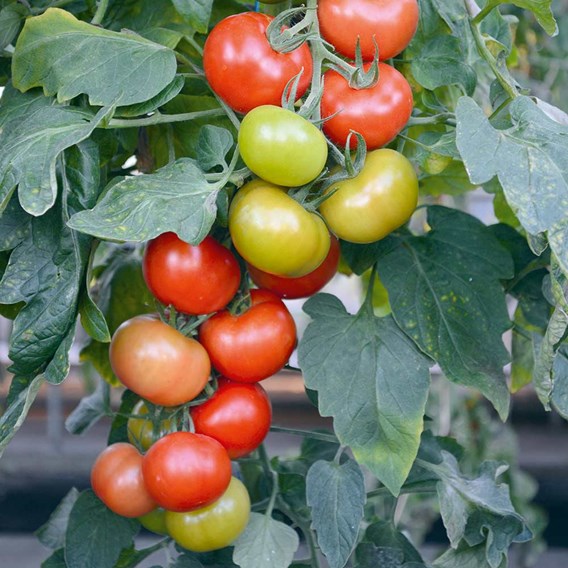
Strong and sturdy plants are likely to survive the dreaded to diseases or pests, so opt to grow a plant that suits your site and soil. You could opt for -naturally disease-resistant varieties whenever you can, such as blight-resistant tomatoes!
Organic Veg Seeds
At Dobies we have a wide range of organic seeds as organic growing is more popular than ever. You’ll find everything from pumpkins to carrots and even some edible flowers. You also know exactly what it is in your veg and the journey of where it came from, which gives you much more information than shop-bought veg. So, if you plan to take the first step towards an organic veg patch or allotment, this range is a great place to start for a future of bumper crops.
Plants for Wildlife
Garden plants are a home for wildlife and our beloved pollinators, and there are a variety of plants we can grow to help provide for them. The pollination process is one that is biological but also vital, helping plants to produce seeds for the next generation. The air, water and soil in our environment see great benefits from this too. The more plants you grow, especially the more varieties, the more wildlife and pollinators will visit and make it their home. Provide a helping hand to do, and shop our plants for bees and plants for butterflies.
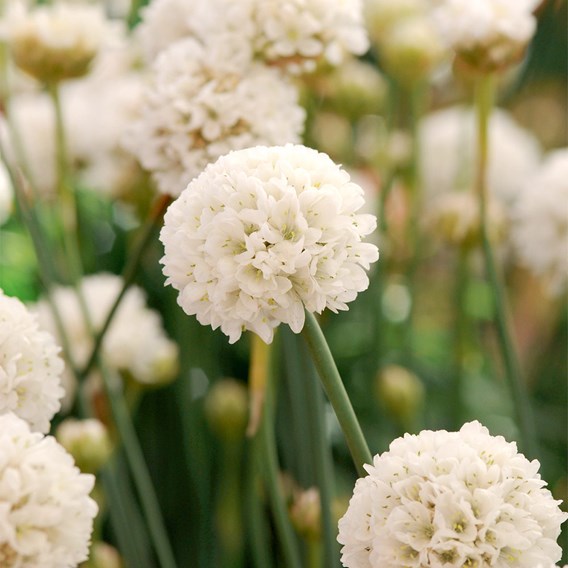
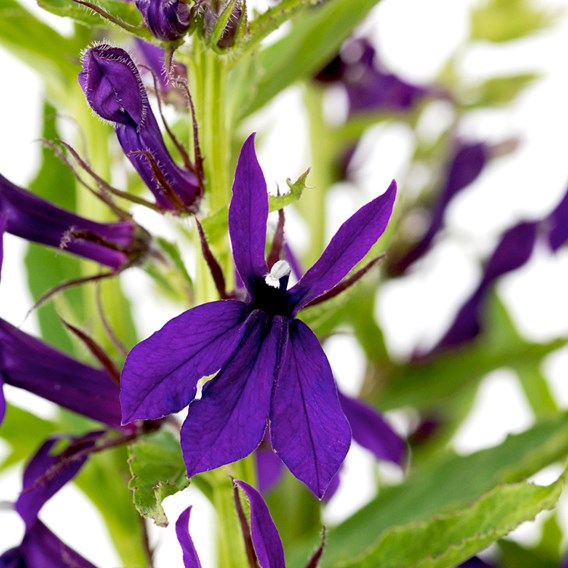
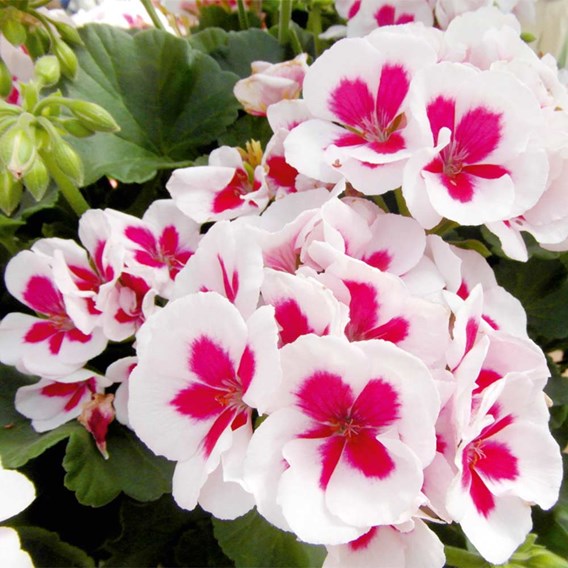
Members of the daisy family are very popular with their single, easily accessible flowers. Echinacea, Rudbeckia or cornflowers are fashionable choices. Other successful options include Verbena bonariensis and lavender both offering pollinators a purple paradise! The Butterfly Bush (Buddleja) needs no explanation – a good choice for those wanting to give their winged friends something a little larger. Achillea offers a great landing platform for bees, hoverflies and butterflies and also provides food for birds in the form of their dried seed heads later in the year.
Be sure to consider all the evening time pollinators too, they need a place in our garden just at a different time of day! Moths also transfer pollen from one plant to another and they love scented white flowers, Nicotiana is a particular favourite. You’ll also benefit too, as the light fades and the white blooms really glow and emit their powerful perfume to be enjoyed by gardeners and moths alike.
Biological Pest Control
If you prefer a natural, organic method of saying goodbye to garden pests, and you don’t have the right natural predators in your garden, then our biological pest controls are the best choice.
Biological pest control is the use of the pests’ natural enemies to control pests in your garden. You can do this by introducing the pests’ natural predators, e.g. ladybird or by the use of nematodes. We have biological pest control solutions for vine weevil, chafer grub, mealybug, scariad fly (fungus gnats), caterpillars, codling moth, ants and more.
Companion Planting
This is nothing new, and quite an old garden tradition. Companion planting can help protect your crops from pests and attract the right kind of insects to help pollinate them. Pairing particular plants can also be a great way to maximise space in your garden. By combining plants mindfully, plants can aid each other in growing and thriving, to offer nutrients in the soil, protection from wind or sun and also, by attracting beneficial pests or acting as a defense against harmful ones.
With our selection, you can benefit from the synergies between carefully selected companion varieties which work together to lure away pests or aid pollination.
Top Tips:
- Plant marigolds close to tomato plants to repel pests.
- Plant mint next to crops to attract ladybirds, they keep greenfly away!
- Borage is popular with bees, so great near fruit plants.
- Poached egg plants attract ladybirds which keep greenflies away.
- Red knight repels pests from all crops!
Simple Tips On Sustainability
Here are just a few simple pointers on how to make some sustainable changes in your home and garden!
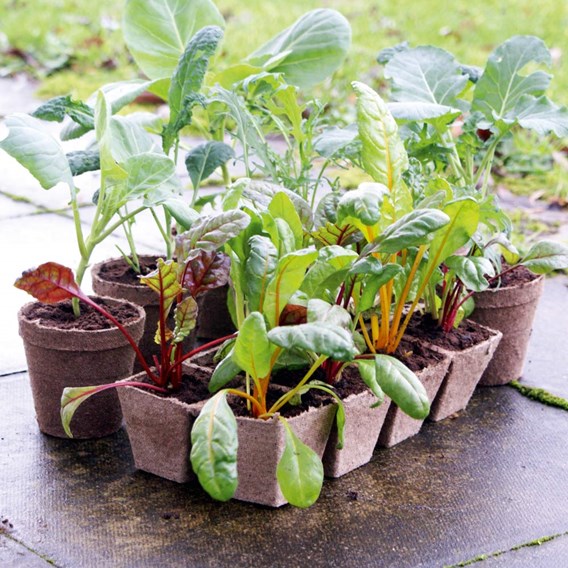
- Save your seeds from flowers and veg – When your crops have matured, collect the seeds before they dry out. Store in a cool dry place, and sow them in the next season!
- Composting – Remember most kitchen and garden waste can go in here.
- Re-use plastic pots and containers – It says it the name, re-use again and again. Or, opt for recycled eco-friendly pots and containers, we have plenty!
- Conserve water – Collecting rainwater in a water butt means less use of a hosepipe. Save money and water!
- Natural Pest Control – Less use of chemical pest killers with damaging toxins to your garden and the environment around.
- Mulching – Keeps your soil moist, full of nutrients and will keep pests away!
- Unmowed grass – It doesn’t have to be your entire garden, but if you keep one section or corner unmowed you will be offering a range of wildlife and a happy home.
- Air quality – Plant trees and hedges to improve surrounding air quality and provide another safe place for wildlife.
We hope you find our guide to organic gardening and sustainability helpful! Let us know if you opted for any organic methods this gardening season in the comments below.
Whatever else you doing on plot, or indoors, make sure to share your gardening activities on our social media pages!
Check out our latest blog posts below!

